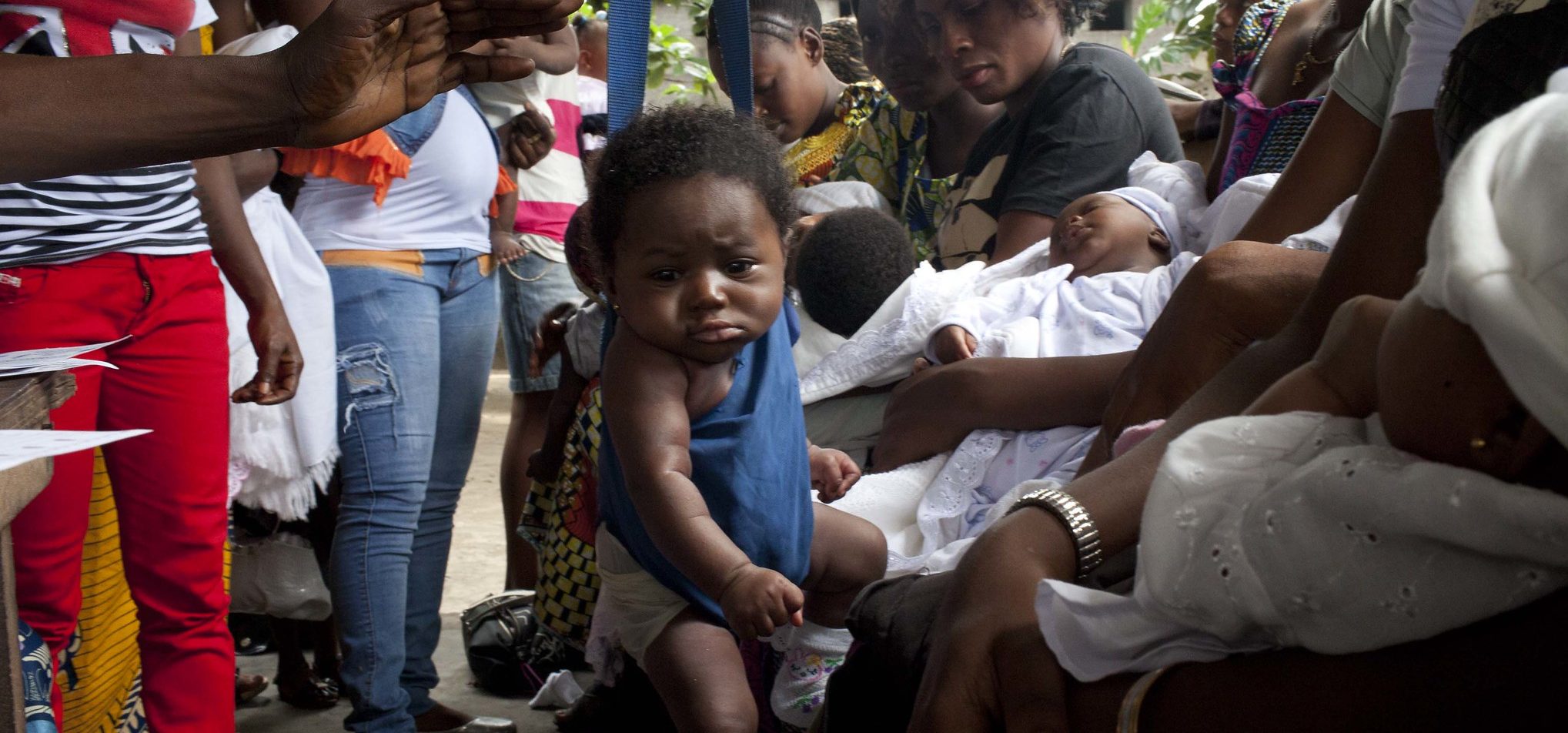
Supporting community health workers in fragile settings from a gender perspective: a qualitative study
Download this BMJ Open paper here. [Opens new tab]
This study explored how gender influences the way community health workers (CHWs) are managed and supported in three fragile and conflict-affected settings – Sierra Leone, Liberia and Democratic Republic of Congo (DRC) – and the effects on their work experiences.
Two districts were selected in each country -Kenema and Bonthe districts in Sierra Leone, two districts in Grand Bassa county, Liberia (one with international support for CHW activities and one without) and Aru and Bunia districts in Ituri Province in DRC.
The study found that while policies were put in place in Sierra Leone and Liberia to attract women to the newly paid position of community health workers after the Ebola outbreak, these good intentions evaporated in practice. Gender norms at the community level, literacy levels and patriarchal expectations surrounding paid work meant that fewer women than imagined took up the role. Only in DRC, there were more women than men working as CHWs. Gender roles, norms and expectations in all contexts also affected retention and progression as well as safety, security and travel (over long distance and at night). Women CHWs also juggle between household and childcare responsibilities. Despite this, they were more likely to retain their position while men were more likely to leave and seek better paid employment. CHWs demonstrated agency in negotiating and challenging gender norms within their work and interactions supporting families.
Download this BMJ Open paper here. [Opens new tab]
Authors
Joanna Raven 1, Haja Wurie 2, Amuda Baba 3, Abdulai Jawo Bah 4, Laura Dean 1, Kate Hawkins 5, Ayesha Idriss 4, Karsor Kollie 6, Gartee E Nallo 7, Rosie Steege 1, Sally Theobald 1
1 Department of International Public Health, Liverpool School of Tropical Medicine, Liverpool, UK
2 Department of Nursing, College of Medicine and Allied Health Sciences, University of Sierra Leone, Freetown, Sierra Leone
3 Institut Panafricain de Santé Communautaire et Medecine Tropicale, Bunia, Democratic Republic of the Congo
4 Department of Pharmacology, College of Medicine and Allied Health Sciences, University of Sierra Leone, Freetown, Sierra Leone
5 Pamoja Communications, Brighton, UK
6 Neglected Tropical Disease Program, Ministry of Health, Monrovia, Liberia
7 University of Liberia Pacific Institute for Research and Evaluation, Monrovia, Liberia
Image: A one month old baby is weighed by a community health worker, Democratic Republic of Congo – World_Bank_Congo_EDIT_001 via Flickr [opens new tab]